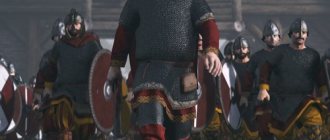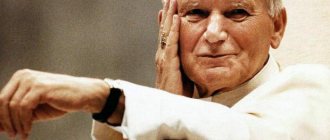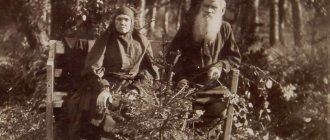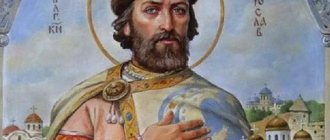Prefect of Judea
In 26 AD, the Roman Emperor Tiberius appointed Pontius Pilate as prefect of the Roman provinces of Judea, Samaria and Idumni, although Pilate is best known for his leadership of Judea. While the typical term of office for a Roman prefect was 1–3 years, Pilate was required to serve as the fifth Roman prosecutor for 10 years. Accepting his position, Pontius Pilate became the successor of Valerius Gratus.
As a Roman prefect, Pontius Pilate was given the powers of a supreme judge, which meant that he had sole authority over the execution of a criminal. His duties as prefect included such mundane tasks as collecting taxes and managing construction projects. But perhaps his most important duty was to maintain law and order. Pontius Pilate tried to do this by any means necessary. What he could not agree on, he said, was achieved through brute force.
Attacks are triggered by hormones and weather.
Migraine attacks are especially often provoked by sudden changes in weather, physical stress, insomnia, inhalation of odors that irritate the respiratory tract, psychological trauma and consumption of alcoholic beverages. In women, headaches are often caused by hormonal changes in the body associated with the menstrual cycle.
A migraine attack can last from several hours to three days. After its completion, many people have a feeling of complete exhaustion of mental and physical strength. Drug treatment of an attack should begin as early as possible, preferably from the moment the aura or the first signs of headache appear. There are many pharmaceutical drugs that relieve or completely stop migraine attacks.
Crucifixion of Jesus
As governor of Judea, Pontius Pilate faced a conflict of interest between the Roman Empire and the Sanhedrin of the Jewish Council. When Pontius asked Jesus if he was the King of the Jews, he said that Jesus took the title: which he never did. This charge was considered treason by the Roman government. According to some sources, Pontius Pilate collaborated with Jewish leaders who viewed Jesus' claim to power as a political threat to the persecution of Jesus.
In the gospel accounts of the Trial of Jesus, Philo and Josephus described Pontius Pilate as cruel and unjust. All four Gospels describe him as weakly amenable to the Jewish authorities." pressure on him to execute Jesus. The Gospels indicate Pontius Pilate's indecisiveness, citing that he admitted to releasing Jesus at one stage of the trial, but later rescinded the offer.
From the Gospels, only Matthew 27:24 describes Pontius Pilate as refusing to participate in the crucifixion of Jesus: Therefore, when Pilate saw that he was getting nothing, but rather that a riot had begun, he took water and washed his hands in front of the crowd, saying: “I am innocent.” in the blood of this person; take care of it yourself." (ESV)
Since the rules of the Roman Empire stated that calling oneself a king was grounds for treason, Pontius Pilate ordered that the initials INRI be inscribed on Jesus' tomb after the crucifixion. In Latin, INRI stood for the name of Jesus and his title as King of the Jews. Some believe that this title was intended as a mockery to ridicule Jesus for his high demands.
Court of Pontius Pilate
When morning came, the religious leaders took Christ to trial before the Roman procurator Pontius Pilate, because they themselves could not sentence Him to death.
They understood that in the eyes of Pilate, the charge of blasphemy would not be enough to condemn a person to death. So they officially brought another charge. Religious leaders declared that Jesus had made Himself the King of the Jews.
Since Judea (Israel) was then ruled by Pilate, such an accusation should have been regarded by him as an attempt to prepare an uprising.
Mysterious death
The circumstances surrounding the death of Pontius Pilate in 39 AD are something of a mystery and a source of contention. According to some traditions, the Roman Emperor Caligula ordered Pontius Pilate to die by execution or suicide. According to other sources, Pontius Pilate was sent into exile and committed suicide.
Some traditions claim that after committing suicide, his body was thrown into the Tiber River. Still others believe that the fate of Pontius Pilate lay in his conversion to Christianity and subsequent canonization. In fact, Pontius Pilate is considered a saint by the Ethiopian Orthodox Church.
Regardless of what actually became of Pontius Pilate, one thing is certain: Pontius Pilate did exist. During excavations at Caesarea Maritima in 1961, Italian archaeologist Dr. Antonio Frova discovered a piece of limestone inscribed with the name Pontius Pilate in Latin, linking Pilate to Emperor Tiberius.# x2019; reign s.
Unbearable migraine aura
In itself, this historical and literary diagnosis is, of course, interesting. But, unfortunately, it does not save you from migraines, which are familiar to more than 11% of the world's population. And most often, women suffer from this “aristocratic” disease, according to some doctors. Many of them experience severe headaches, which are sometimes accompanied by nausea and vomiting, and increased sensitivity to light and sound.
Migraine is a vascular type of headache. When the walls of the blood vessels supplying the brain expand, they begin to put pressure on the surrounding nerve cells. That is why such painful and very unpleasant sensations arise when everything causes irritation.
Migraine headaches have warning signs called an aura. Some patients have a veil, “floaters” before their eyes, and their torment is intensified by bright light. Others begin to be put off by smells that seem unbearable. Some patients complain of impaired hearing, speech, and coordination of movements. The manifestations of the aura depend on which areas of the brain suffer more from circulatory imbalance.
Character of the hero
The story of Pilate is perceived ambiguously by readers. He appears to be a tyrannical man who repeatedly calls himself cruel. Pontius was very smart and educated. He spoke three languages:
- Latin;
- Greek;
- Aramaic.
He didn't have a wife or children. The man devoted himself completely to service. The procurator was considered angry and unsociable. People often called him ferocious and dangerous. They tried to avoid meeting with Pontius. Due to frequent migraine attacks, which caused great suffering, Pilate was prone to outbursts of anger.
His arrogance made him stern and menacing. During the war, he showed himself to be a brave and brave man who defended his subordinates. In the situation with Yeshua Ha-Nozri, he showed cowardice. At this moment, the procurator hated his title and the inability to change anything.
Pilate ordered the execution of Yeshua, but this decision brings him only torment. He thinks about the words of Ha-Notsri, who considered everyone “good people.” Pontius saw too well the real essence of man. In the Valley of the Maidens, Mark the Rat-Slayer was almost torn apart by a crowd of Germans, the procurator saw other crimes. All this allowed him to lose faith in people.
Pontius learned that Yeshua was beaten for preaching, bandits killed soldiers, and Judas eventually betrayed Ha-Nozri. Pilate does not believe the words of the prisoner that the kingdom of truth will come. The procurator has long lost faith in people. His whole life is filled with suffering and sadness, torment.
Pontius was a deeply lonely and unhappy man. His isolation and title forced him to make difficult decisions. Yeshua's punishment was not easy for him, since the philosopher seemed to have seen a real procurator. A tired and sick person who dreams of peace.
All this brought Pilate pangs of conscience, thoughts and eternal torment. All he could do was order that the prisoner be killed quickly and without suffering. After this, the procurator will be tormented by remorse for “twelve thousand moons.”
Pontius will suffer from insomnia. He is doomed to complain about his position and the lack of peace. His dog suffers with him. The man wants to finally walk along the lunar path and continue the conversation with Yeshua.
Woland will note that there is no point in asking Margarita to release the procurator. Yeshua himself had already stood up for him, and asked Levi Matthew to convey his request. It was embodied by the Master, who limited himself to a short: “Free!”
So Pontius Pilate was able to fulfill his long-standing desire for peace and a walk along the lunar path.
Important points
In the novel “The Master and Margarita” Pontius Pilate occupies one of the central places. He is the fifth prosecutor of Judea and belongs to the noble class. Power is in his hands, he decides the fate of many people. He handles litigation and leads the Roman army.
The description of Pontius Pilate allows us to get to know him better. The procurator's appearance is very ordinary; he does not stand out in any way. He has a yellowish skin tone and a shaved face without a hint of stubble. He was almost bald, but that didn't bother him.
Migraine - this is the disease Pontius Pilate suffered from. She gave him a lot of unpleasant sensations. The man is annoyed by what he is doing and by the city of Yershalaim and its residents. For this reason, the procurator often gets irritated and takes it out on the people around him.
In the second chapter of the novel The Master and Margarita, Pontius appears in a white cloak with red lining. He had a shuffling gait that marked him as a cavalryman. He sat in his chair like a stone due to a severe migraine. He had to decide the case of Yeshua Ha-Nozri.
His whole appearance showed power and strength , but no one knows what is in the procurator’s soul. Little is known about his childhood: his father was an astrologer king, and his mother was the daughter of a miller. The parents were confident that their son would become a great man.
Pontius was a brave and courageous warrior. His voice is broken, as he had to be in serious battles. The empire was besieged by the Germans, and Pilate had to fight them. Centurion Ratkiller and other warriors owed their lives to Pontius. He was nicknamed the Golden Spear, he never betrayed anyone.
The prosecutor didn't care about the people he sentenced to death. He is forced to be in the city due to duty. Therefore, he has to do routine work:
- lead the army;
- listen to denunciations;
- handle court cases, etc.
Power does not please him, and he hates his activities. Yeshua astutely noted that the only creature close to the procurator is the dog Bango.
One symptom - many diseases
However, migraine is not the only cause of headaches. Sometimes headache is the only symptom of serious brain pathologies: traumatic brain injuries, tumors of the brain and meninges, inflammation of the meninges (meningitis and meningoencephalitis). Frequent headaches occur with arterial hypertension, increased intracranial pressure and atherosclerosis of cerebral vessels. A sharp and severe headache may be a sign of a transient ischemic attack - a precursor to a stroke.
The cause of headaches can also be other pathologies - neuroses, endocrine disorders, eye diseases and sinusitis.
“Non-cerebral” headaches are also caused by intoxication due to viral and bacterial infections. Remember how your head hurts with flu and sore throat. Sometimes the head becomes a victim of the side effects of medications - oral contraceptives, caffeine and nitroglycerin. A headache may also occur under the influence of chemicals (alcohol, lead, carbon monoxide). Hypoxia and other metabolic disorders manifest themselves as headaches. Quite often people with osteochondrosis of the cervical spine, etc. have headaches. That is why it is important not to ignore headaches, but to correctly diagnose and treat them.
To get rid of headaches that are not associated with severe brain diseases, procedures are used that improve blood circulation and nerve conduction in tissues.
These are, first of all, manual therapy and therapeutic massage, various physiotherapeutic procedures.
Special physical exercises strengthen the target organs and systems that cause headaches, and also have a tonic effect. For some, medicinal baths and hirudotherapy help them forget about headaches.











